By Jennifer Silver, JMMDS
On Sunday, August 24, we hosted a Garden Conservancy Open Days tour at the beautiful mountain-top residence of JMMDS clients here in Rockingham, Vermont. It was a perfect day, the flowerbeds were bursting with radiant color, and we had the pleasure of meeting over 200 garden enthusiasts!
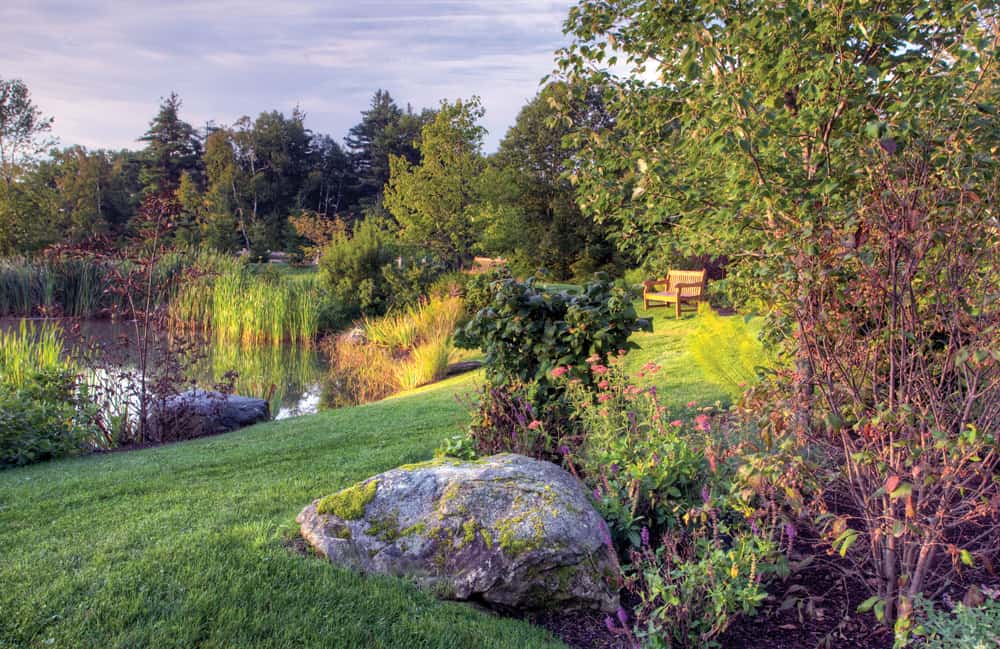
The landscaped pond at High Meadow Farm. Photo: Bill Sumner.
Over and over, visitors asked us about the shrubs planted around the pond, where Julie had carefully placed boulders surrounded by native plants in artful combinations. A variety of fruits abound this time of year, and everyone was curious about what they were. Blueberries were easy to spot, but others were less familiar.
Here’s a photo gallery of the fruiting shrubs planted in the pond garden. They’re all cold-hardy and beautiful in every season.
Sambucus nigra (Elderberry)
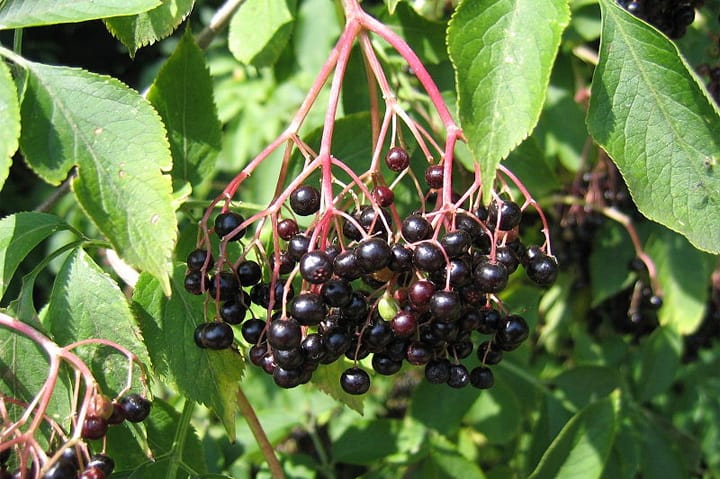
Sambucus photo: Wikimedia Commons
Viburnum nudum ‘Brandywine’
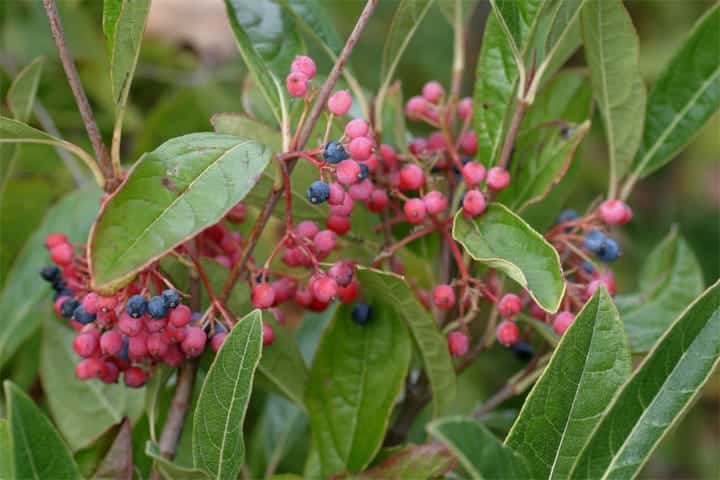
Viburnum photo: Powell Gardens blog
Amelanchier alnifolia (Serviceberry, Juneberry, Saskatoon)
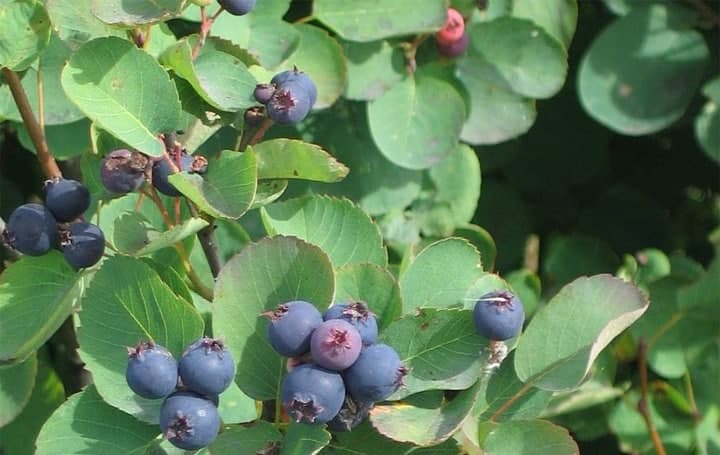
Amelanchier photo: Wikipedia.
Ilex verticillata (Common Winterberry)
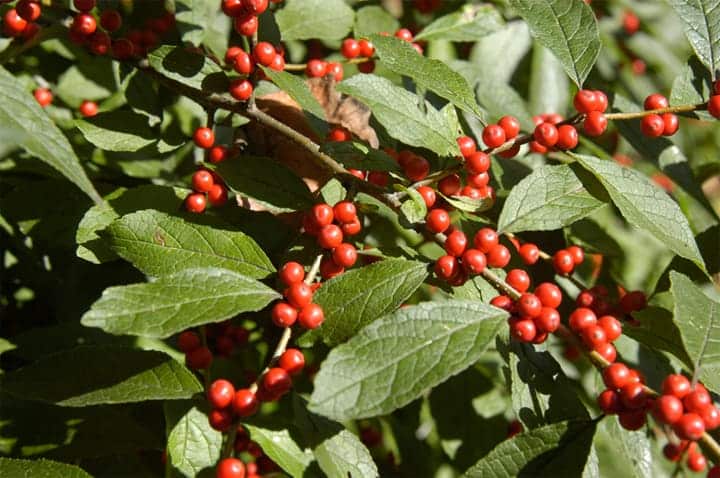
Ilex photo: Mount Cuba Center.
Vaccinium corymbosum (High-Bush Blueberries)

Blueberry photo: Wikipedia.
By the way, our favorite website for learning about which fruits and plants are safe to eat is Eat the Weeds. Check before you chomp!

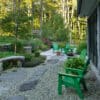
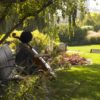
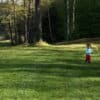

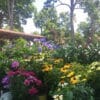
It WAS a beautiful day, and it is High Meadows is such an astoundingly beautiful place. Everyone there was obviously happy just to be there.
I was wondering how much soil moisture elderberries can handle, ei, how close to the pond or wet area can they be planted?
Good question! These elderberries are several feet from the pond’s edge, in a raised bed with lots of organic matter (i.e., good drainage). They can tolerate some moisture but don’t like to have wet feet, so they shouldn’t be planted in heavy, wet soil or standing water.
So beautiful photos! They are so professional! I have the same berries at my backyard but I don’t know what to do with them. Thanks for the article! Regards!